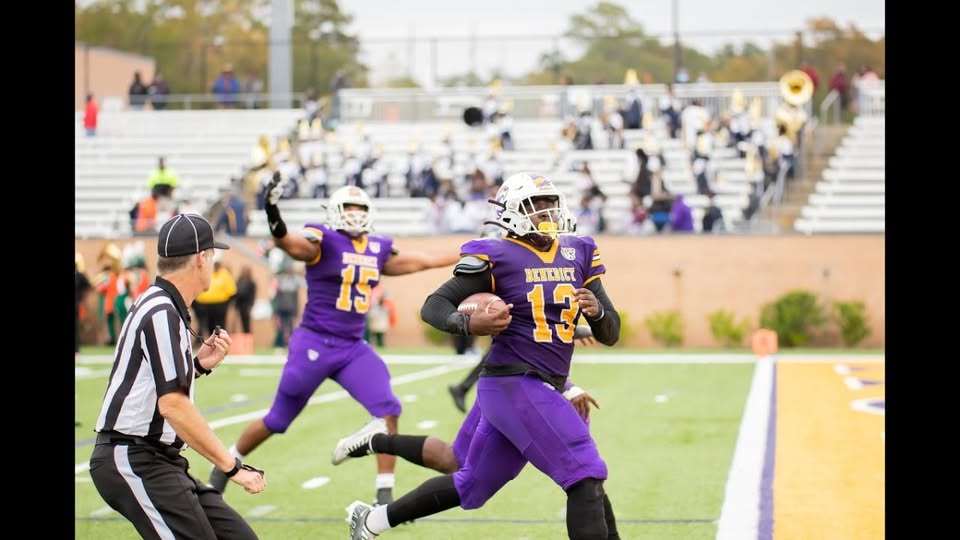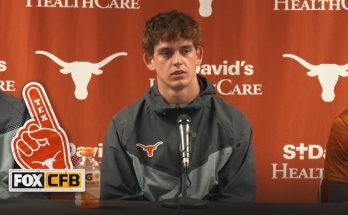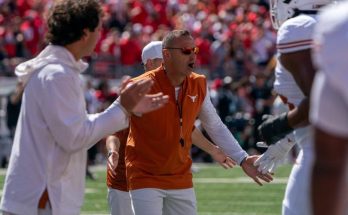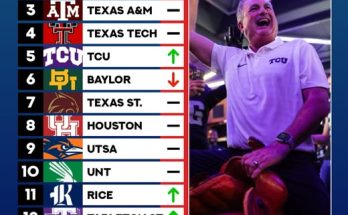Alabama State University’s Hornets are stepping into the national spotlight this season with not one, but two high‑profile, nationally televised football matchups—pressing their case as a rising force in the HBCU athletic landscape. Thanks in part to HBCU GO’s rising influence as a platform and network, the Hornets will soon showcase their talents to a broader audience, reinforcing the university’s commitment to athletic growth, cultural pride, and visibility for Black college athletics.
HBCU GO, established in recent years as the leading media outlet spotlighting Historically Black Colleges and Universities, has forged strategic partnerships with the Southwestern Athletic Conference (SWAC) and individual institutions to deliver unprecedented access. The 2024 football season schedule reveals that Alabama State’s game against Bethune‑Cookman on September 28 from Daytona Beach will air live on HBCU GO, exemplifying their mission to stream marquee matchups that historically earned little national exposure
This broadcast deal signals more than just television time—it reflects a shift in how HBCU athletics are packaged and consumed. For Alabama State, access to HBCU GO’s growing digital reach illustrates a blend of strategic ambition and cultural messaging, projecting Black excellence on platforms where the Hornets’ performances can resonate from Florida to North Carolina, and even California or New York.
Alabama State’s momentum extends beyond st As one of the most storied HBCU classics, the match pits longstanding rivals at ASU Stadium in Montgomery and presents a prime-time Sunday stage with millions of potential viewers.
Securing a spot on ESPNU isn’t just a boon for local fans—it positions Alabama State in high-visibility territory, etched into national schedules and ESPN’s promotional narratives. For student-athletes, alumni, and local businesses alike, this kind of exposure reflects progress in recognition and revenue for the university’s football program and university morale.
What fuels this media interest? At its core, Alabama State’s success on the field is central. The Hornets operate in the competitive SWAC as an FCS program, playing in the brand-new ASU Stadium—a $62 million, 26,500‑seat facility that opened in 2012 and reflects the university’s long-term athletic investment
Sharpened recruiting, coaching upgrades, and promising talent pipelines have enabled the Hornets to ascend their conference standings while capturing national attention. A handful of players have earned preseason All‑American and All‑SWAC honors, including linebacker Rico Dozier, defensive end Treqwan Thomas, cornerback James Burgess, Robert McMinn, and an honorable mention for DeMarkus Cunningham (—a powerful indicator of their on‑field potential and rising profile.
The Hornets’ two gravity-defying television slots underscore a wider trend: HBCU sports embracing commercial and cultural capital without sacrificing identity. HBCU GO, which streams networked and broadcast games—including on CBS‑owned station duopolies in major U.S. markets—proactively allows Black colleges to identify their brands and celebrate their heritage in a media landscape historically oblivious to them .
This is more than football: it’s about marching bands, vibrant cheer squads, storied rivalries, and the communal spirit that radiates from HBCU campuses. Exclusive coverage amplifies traditions like the Mighty Marching Hornets’ performances and half-time spectacle, giving them global reach and reinforcing cultural resonance (ortals. Web-savvy recruits now expect national exposure; high school athletes dream of primetime that validates their athletic ambitions and energizes family pride. When schools like Alabama State appear on networks like ESPNU and HBCU GO, they effectively compete with larger NCAA programs for attention, investment, and recruiting prowess.
Moreover, these spotlighted games reinvigorate campus life and rally community pride. Football Saturdays around Montgomery now bear the promise of national recognition—an intangible but potent motivator. Local businesses, alumni donors, and student engagement all rise in step with visibility, translating airtime into a broader ecological boost for the university.
September 28 at Bethune‑Cookman – HBCU GO will broadcast live from Daytona Stadium in Daytona Beach, Florida. That matchup also features the Lady Hornets across multiple sports on the same platform ()November Turkey Day Classic vs. Tuskegee – The Hornets’ iconic Thanksgiving weekend clash will air on ESPNU directly from Montgomery’s ASU Stadium (. Expect fanfare, full capacity, classic Southern HBCU ambiance, and national reach.
These exposures mark a turning point. Historically, ASU Stadium has hosted games like the Turkey Day and Magic City Classics (drawing 60,000+ fans annually) and has been fitted to scale up to 55,000 seats . Television audiences now accompany these live crowds, positioning Alabama State overhead in broader athletic conversations, conference assessments, and FCS-level recognition.
Institutionally, those prime-time slots can influence investments—public and private—moving funds into recruiting, coaching salaries, and facility enhancements. For administrators, the evolving question centers on how performance metrics on TV translate into sponsorships, higher application rates, and alumni contributions.
Founded to rectify visibility inequities within U.S. college sports, HBCU GO combines live streaming, social media, and broadcast licenses to elevate games that used to fly under the radar. Its 2023–24 schedule included 19 conference matchups—both men’s and women’s basketball—on weekends through HBCU GO and on network affiliates in major metropolitan markets
By forging these deals with SWAC and HBCUs like Alabama State, HBCU GO enhances recruitment pipelines, invites advertisers, and establishes new pathways for cultural storytelling. The Alabama State vs. Bethune‑Cookman game is part of this expanding content footprint.
Alabama State’s national TV games represent more than tactical marketing—they underscore a cultural renaissance. Coverage in major markets frames HBCU narratives around excellence and heritage. Iconic moments—revealing explosive returns, star defensive plays, or halftime performances by The Mighty Marching Hornets—flow from regional pride into national conversation.
It’s a validation of what HBCUs have long known: athletic excellence is entwined with academic, cultural, and communal purpose. Televised coverage transforms game broadcasts into visual storytelling, fostering understanding of Black college experiences beyond conventional athletic narratives.
There’s work ahead. For televised interest to endure, Alabama State needs consistent wins, polished presentation, and fan engagement. HBCU GO must scale platform capacity, streamline broadcast quality, and secure additional carriage deals with cable and satellite providers. Meanwhile, ASU athletic leadership must harness this exposure to diversify sponsorships and improve athlete scholarships.
Still, the Hornets’ TV slots signal progress. They reflect what’s possible when historically marginalized institutions assert their value in high-stakes media arenas—and when companies like HBCU GO invest in amplifying that value.
With two nationally televised games booked for fall 2024—one on HBCU GO and one on ESPNU—Alabama State is riding a wave of renewed momentum and opportunity. But this is more than a scheduling milestone. It’s a harbinger: could ASU soon host ESPN prime-time matchups, draw FBS-level attention, or see their athletic brand respected on par with power-conference regional schools?
That hinges on execution—performance in Daytona and Montgomery, growth in viewership, and follow-through in sponsorship and recruitment. But the groundwork is set: two televised games; tens of thousands of broadcast viewers; thousands more in stadium stands; and a cultural narrative now entering living rooms from coast to coast.
In a single season, the Alabama State Hornets are staging a HBCU renaissance on the national sports stage. As HBCU GO thrusts their September game into the streaming spotlight, and ESPNU carries the Turkey Day Classic, ASU’s student-athletes, band, and fan base find themselves embraced by momentum—and expectation.
It’s a critical moment: one where performance meets opportunity, where heritage meets national audiences, and where underrepresented athletic traditions earn their rightful place. As Longhorns to the South, Alabama State is telling a new story—on turf, on screen, and in hearts across America. Watch this space: the Hornets are here, and they’re ready to buzz louder than ever.



